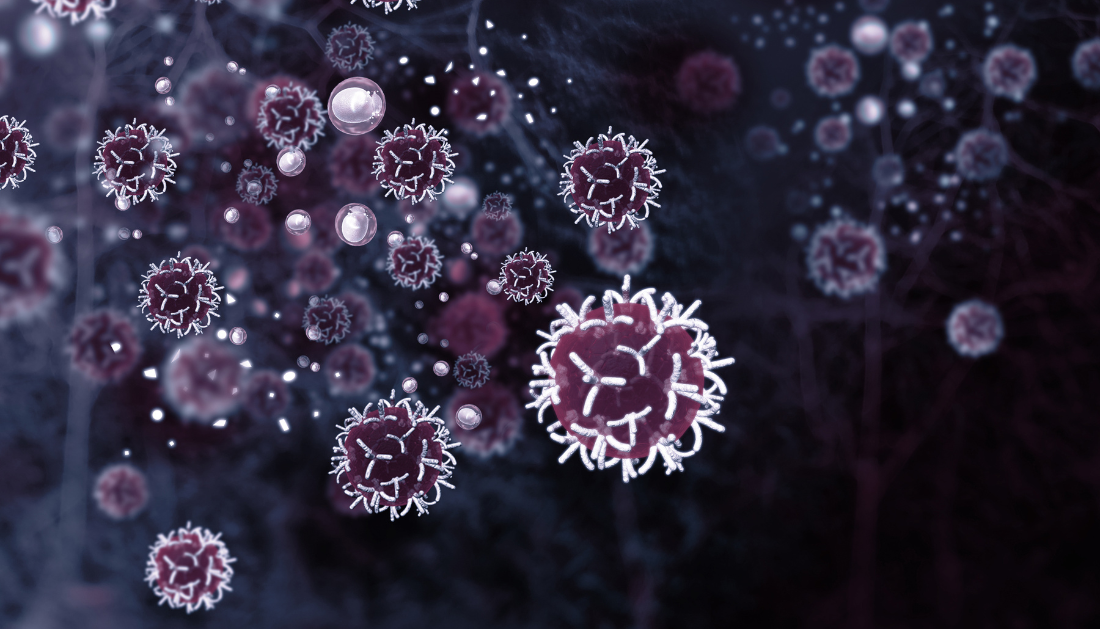

Nature-Inspired Nanoparticles Deliver Precision Chemotherapy
Researchers from the University of Colorado Boulder have introduced a groundbreaking platform that mimics gecko feet to adhere nanoparticles directly to tumor surfaces, enhancing the precision and duration of targeted chemotherapy. Drawing inspiration from the Van der Waals force, the same mechanism that allows geckos to cling to vertical surfaces, the team developed gecko-inspired nanoparticles designed to remain fixed at tumor sites, even in slippery environments like the bladder.
Explore All Oncology CME/CE Conferences
These soft dendritic particles, made using FDA-approved PLGA (poly lactic-co-glycolic acid), provide a biodegradable drug delivery system that slowly releases chemotherapy agents over several days. Early-stage trials in mice with bladder cancer show strong adhesion to tumor tissue, prolonged drug release, favorable immune response, and minimal toxicity. The technology may represent a significant step in improving localized cancer therapy, reducing the frequency of invasive treatments, and minimizing exposure of healthy tissue to cytotoxic agents.
Bladder Cancer and the Challenge of Intravesical Chemotherapy – Nanoparticles as Solution
Prolonged Drug Retention Could Reduce Recurrence and Side Effects
Bladder cancer treatment often involves intravesical chemotherapy, where drugs are delivered via catheter into the bladder. However, due to regular urination and the organ’s slippery lining, medications are frequently washed out within hours, necessitating repeated procedures and often leading to insufficient exposure of tumors to therapeutic concentrations.
The new nanostructured drug delivery solution counters this by adhering securely to tumor sites, mimicking the microscopic spatulae on gecko feet. This adhesion supports sustained drug release, reducing the number of treatments while maintaining therapeutic intensity. Beyond bladder tumors, the platform may prove valuable in treating other localized cancers, such as oral, head, and neck tumors.
“We’ve developed a practical, flexible platform for localized cancer therapy that could be easily scaled and translated.”
Jin Gyun Lee, first author
With a biocompatible nanoparticle model designed to disintegrate harmlessly after completing drug delivery, this approach reduces systemic exposure and holds promise for patient-friendly cancer management.
Translational Potential for Healthcare Providers
From Biomaterials to Bedside Oncology Innovation
For oncologists, oncology nurses, and drug delivery specialists, the gecko-inspired platform represents a shift toward cancer-targeted polymers designed with clinical scalability in mind. The potential to provide long-lasting, site-specific drug therapy while minimizing adverse effects could significantly improve the quality of care for patients with localized tumors.
This cross-disciplinary research, merging biomaterials science with clinical oncology, demonstrates how nature-inspired medical technology can inform practical innovations in cancer therapeutics. As further research progresses, these PLGA nanoparticles could play a role in reshaping how tumors are managed within organs that pose delivery challenges.
For More Information: Lee, J. G., et al. (2025). Soft Extrudable Dendritic Particles with Nanostructured Tendrils for Local Adhesion and Drug Release to Bladder Cancers. Advanced Materials. doi.org/10.1002/adma.202505231.
more recommended stories
 Pediatric Crohn’s Disease Microbial Signature Identified
Pediatric Crohn’s Disease Microbial Signature IdentifiedKey Points at a Glance NYU.
 Nanovaccine Design Boosts Immune Attack on HPV Tumors
Nanovaccine Design Boosts Immune Attack on HPV TumorsKey Highlights Reconfiguring peptide orientation significantly.
 High-Fat Diets Cause Damage to Metabolic Health
High-Fat Diets Cause Damage to Metabolic HealthKey Points Takeaways High-fat and ketogenic.
 Acute Ischemic Stroke: New Evidence for Neuroprotection
Acute Ischemic Stroke: New Evidence for NeuroprotectionKey Highlights A Phase III clinical.
 Statins Rarely Cause Side Effects, Large Trials Show
Statins Rarely Cause Side Effects, Large Trials ShowKey Points at a Glance Large.
 Anxiety Reduction and Emotional Support on Social Media
Anxiety Reduction and Emotional Support on Social MediaKey Summary Anxiety commonly begins in.
 Liquid Biopsy Measures Epigenetic Instability in Cancer
Liquid Biopsy Measures Epigenetic Instability in CancerKey Takeaways Johns Hopkins researchers developed.
 Human Antibody Drug Response Prediction Gets an Upgrade
Human Antibody Drug Response Prediction Gets an UpgradeKey Takeaways A new humanized antibody.
 Pancreatic Cancer Research: Triple-Drug Therapy Success
Pancreatic Cancer Research: Triple-Drug Therapy SuccessKey Summary Spanish researchers report complete.
 Immune Cell Epigenome Links Genetics and Life Experience
Immune Cell Epigenome Links Genetics and Life ExperienceKey Takeaway Summary Immune cell responses.

Leave a Comment